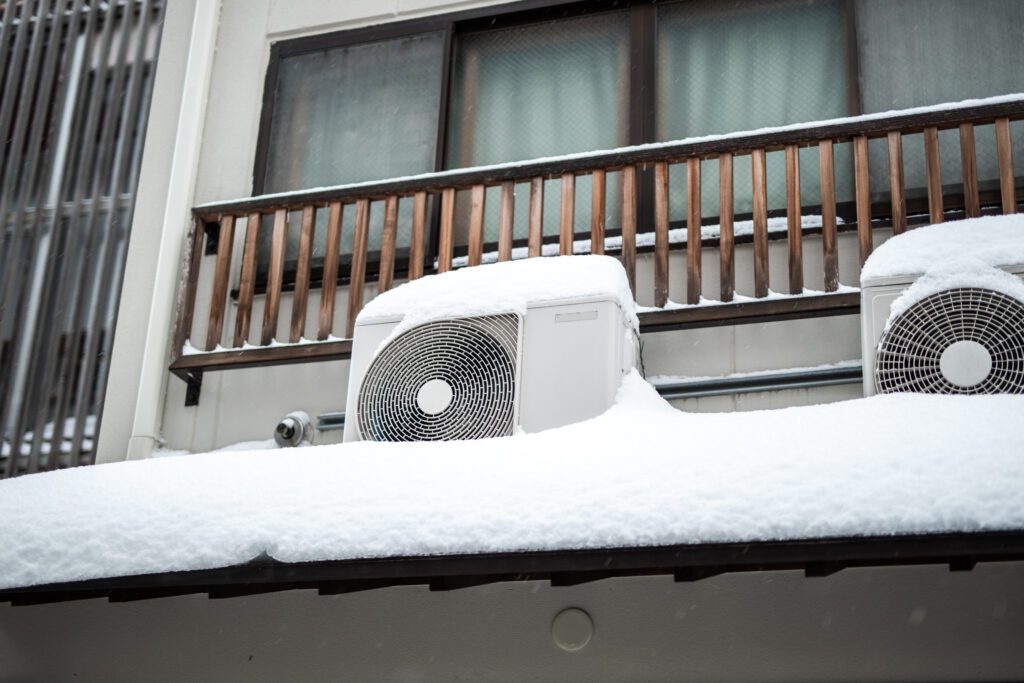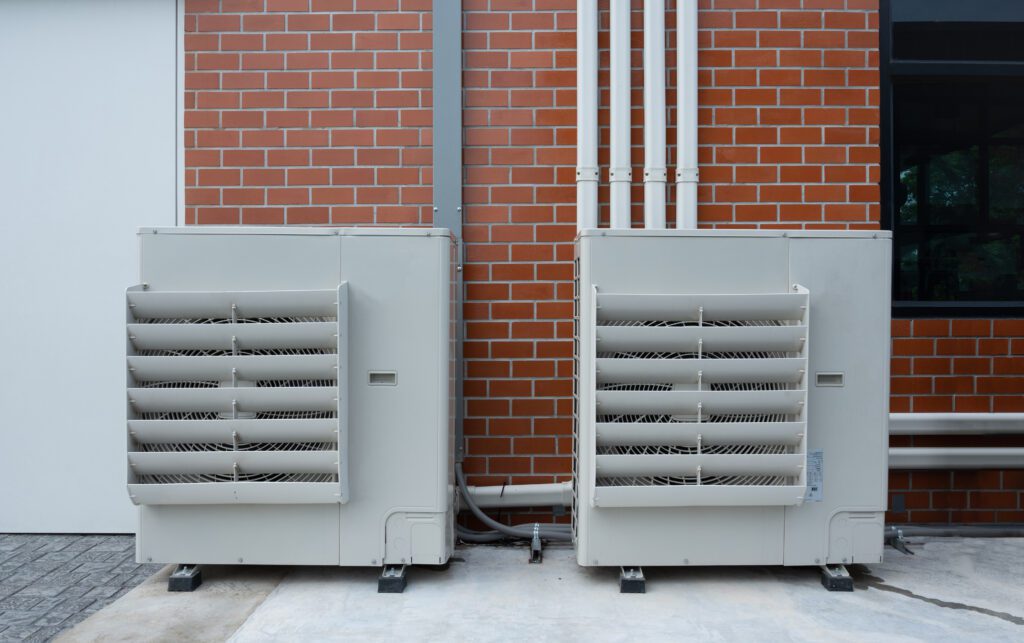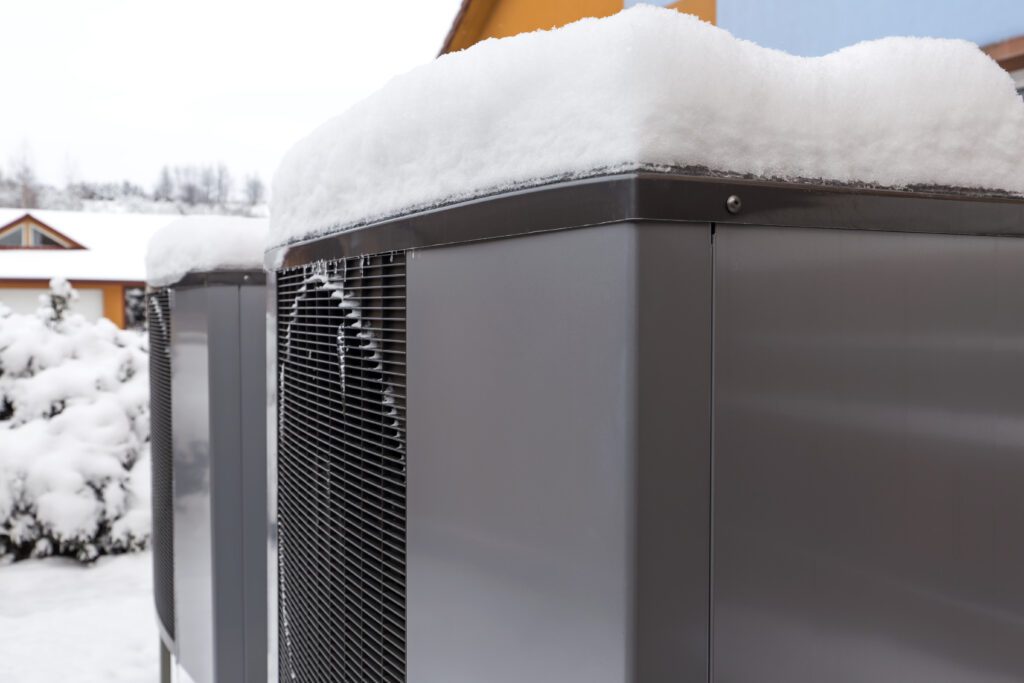The winter months bring a unique set of challenges for homeowners, especially when it comes to maintaining the integrity and efficiency of their HVAC systems. In Martinsburg, WV, where winter temperatures can dip significantly, understanding how to protect your HVAC system is crucial. With the right knowledge and proactive maintenance, you can ensure your system runs smoothly throughout the cold season.
Understanding Your HVAC System
Before delving into maintenance tips, it’s essential to have a foundational understanding of your HVAC (Heating, Ventilation, and Air Conditioning) system. This knowledge will help you recognize its importance and the steps necessary to keep it in prime condition during winter.
Key Components of Your HVAC System
Your HVAC system comprises several key components, including the heater, air conditioner, ductwork, thermostat, and air filter. Each of these elements plays a significant role in regulating your home’s temperature and air quality. By familiarizing yourself with these components, you can better understand how they function and interact with one another.
The heater is arguably the most critical part during winter, as it ensures your home remains warm against the cold winds that can sweep through Martinsburg. Meanwhile, the thermostat allows you to set your desired temperature, while the air filter maintains air quality by trapping dust and allergens. Regularly checking and replacing your air filter is crucial, as a clogged filter can restrict airflow, forcing your system to work harder and potentially leading to costly repairs.
How Your HVAC System Works
Your HVAC system operates by distributing heated air throughout your home, typically using a network of ducts. When you set the thermostat, the furnace ignites, heating air, which is then blown through ducts into various rooms. This process keeps your living space comfortable during frigid temperatures.
Understanding this operation is vital for recognizing signs of potential malfunctions. For instance, if your system struggles to reach the set temperature or produces unusual noises, it may indicate an underlying issue that needs attention. Additionally, it’s important to be aware of the seasonal adjustments your HVAC system may require. For example, during the transition from fall to winter, you should ensure that your system is not only functioning properly but also optimized for heating efficiency. This might involve checking the insulation of your ducts, sealing any leaks, and ensuring that vents are unobstructed to maximize airflow.
Another aspect to consider is the role of ventilation in your HVAC system. Proper ventilation is essential for maintaining indoor air quality, especially during winter when homes are sealed tightly against the cold. Stale air can lead to a buildup of indoor pollutants, which can affect your health and comfort. Many modern HVAC systems include features like energy recovery ventilators (ERVs) or heat recovery ventilators (HRVs) that help introduce fresh air while minimizing energy loss. Understanding how these systems work can enhance your home’s air quality and overall comfort during the colder months.
The Importance of HVAC Maintenance in Winter

Regular maintenance of your HVAC system is particularly critical during the winter months. An improperly maintained system can lead to inefficiencies, increased energy bills, and even complete breakdowns, which can be particularly inconvenient in the middle of a snowstorm.
Potential Risks to Your HVAC During Winter
During winter, your HVAC system is at risk from various factors. Cold temperatures can cause components to contract, leading to potential malfunctions. Additionally, snow and ice accumulation can obstruct outdoor units, preventing them from functioning correctly.
Moreover, if your furnace is not adequately maintained, it can produce carbon monoxide, which is dangerous. The increased use of your HVAC system during the winter amplifies these risks, making maintenance a top priority.
Another significant risk during winter is the potential for frozen pipes, which can occur if your heating system fails. When temperatures drop, water in the pipes can freeze, leading to blockages or even bursts that can cause extensive water damage to your home. Regular HVAC maintenance can help ensure that your heating system is functioning optimally, reducing the risk of such plumbing disasters and keeping your home safe and warm.
The Benefits of Regular HVAC Maintenance
Engaging in regular maintenance offers numerous benefits, including improved energy efficiency, extended equipment lifespan, and enhanced comfort in your home. A well-maintained HVAC system performs better, using less energy to heat your space, which translates to lower utility bills.
Additionally, regular check-ups can help identify potential problems early, preventing costly repairs down the line. Such preventative measures keep your home warm and cozy during winter at an affordable cost. Furthermore, routine maintenance can also improve indoor air quality. During winter, homes are often sealed tight to retain heat, which can trap pollutants and allergens indoors. A well-maintained HVAC system, complete with clean filters and ducts, can help circulate fresh air, reducing the risk of respiratory issues and ensuring a healthier living environment for you and your family.
Preparing Your HVAC System for Winter

As winter approaches, preparing your HVAC system is essential. Taking proactive steps to prepare can make a significant difference in performance and efficiency.
Conducting a Pre-Winter HVAC Inspection
A pre-winter HVAC inspection should be at the top of your preparation checklist. Schedule a professional service to inspect your system thoroughly. During this inspection, technicians will assess the state of your heater, ductwork, and overall system functionality.
They will diagnose any existing issues and suggest necessary repairs or adjustments to optimize performance. This inspection may catch small problems before they escalate, saving you both time and money in the long run. Additionally, a thorough inspection can also help ensure that your system is running safely, reducing the risk of carbon monoxide leaks or other hazards that can arise from a malfunctioning heating unit.
Essential HVAC Maintenance Tasks for Winter
Several essential maintenance tasks should be completed before the cold sets in. Start by replacing or cleaning your air filters, which can become clogged with dust and debris over time. A clean filter improves airflow and energy efficiency.
Next, check the insulation around your ducts to ensure there are no air leaks. Insulating ducts helps maintain the temperature of the air flowing through them, resulting in better efficiency. Additionally, ensure that the outdoor unit is free from snow and ice buildup; any obstruction can hinder airflow and cause system strain. It’s also wise to inspect your thermostat settings and consider upgrading to a programmable model if you haven’t already. A programmable thermostat can help you manage your heating schedule more effectively, allowing for energy savings while keeping your home comfortable during the colder months.
Professional HVAC Services in Martinsburg, WV

While some maintenance tasks can be performed by homeowners, it’s also crucial to know when to call in professional services. Finding a reliable HVAC technician can save you both hassle and stress when the temperatures drop.
When to Call a Professional HVAC Technician
There are several situations where contacting a professional is essential. For example, if you notice strange noises or insufficient heating, you shouldn’t ignore these red flags. These signs often indicate that something is amiss, which a trained technician can diagnose and fix.
Additionally, if your energy bills suddenly spike without a clear reason, it may suggest that your HVAC system is running inefficiently. A professional can conduct an energy audit to identify issues contributing to higher costs.
Another critical sign to watch for is the presence of unusual odors emanating from your HVAC system. Musty smells could indicate mold growth, while a burning smell might suggest electrical issues. Both scenarios warrant immediate attention from a qualified technician to prevent further damage or health risks.
Choosing the Right HVAC Service Provider
When selecting an HVAC service provider in Martinsburg, do your research. Look for companies with solid reputations, positive customer reviews, and proper licensing. Ask for recommendations from friends and family or consult online resources.
Once you’ve narrowed down your options, consider seeking estimates from multiple companies. This approach can help you gauge a fair price for the services you require while ensuring you choose a provider who meets your specific needs.
Moreover, it’s beneficial to inquire about the range of services offered by the HVAC provider. Some companies may specialize in certain systems or brands, while others might provide comprehensive services, including installation, maintenance, and emergency repairs. Understanding their expertise can help you make a more informed decision and ensure that you receive the best possible care for your HVAC system.
Energy Efficiency Tips for Your HVAC System in Winter

Maximizing the energy efficiency of your HVAC system during winter not only helps reduce your carbon footprint but also lowers heating costs. Here are some helpful tips to ensure your system operates efficiently.
Adjusting Your Thermostat for Winter Efficiency
One of the simplest ways to improve your HVAC efficiency is by adjusting your thermostat settings. Lowering the temperature by just a few degrees can significantly lower your heating bills. Consider setting your thermostat to 68°F while you are home, and lower it further when you are away or asleep.
Additionally, investing in a programmable thermostat allows you to set specific heating schedules, ensuring your system runs optimally without unnecessary energy use. Some advanced models even allow for remote access via smartphone apps, enabling you to make adjustments on-the-go. This feature is particularly useful for those who have unpredictable schedules or want to ensure their home is warm upon arrival after a long day.
Insulating Your Home for Better HVAC Performance
Proper insulation plays a significant role in HVAC efficiency. Ensure your attic, walls, and floors are adequately insulated to prevent heat loss. Closed vents in unused rooms and using draft stoppers can contribute to maintaining comfortable temperatures without overworking your HVAC system.
Furthermore, sealing air leaks around windows and doors can help keep warm air inside while keeping cold drafts at bay. By making your home more energy-efficient, your HVAC system can perform better and more affordably. You might also consider adding insulation to your ductwork, especially if it runs through unconditioned spaces like attics or basements, as this can prevent heat loss and improve overall system performance.
By following these tips and staying proactive with maintenance, you can protect your HVAC system during winter months in Martinsburg, WV. Regular inspections and smart adjustments will ensure your home remains warm and comfortable without breaking the bank. It’s also wise to schedule a professional HVAC tune-up before the winter season begins; this can help identify any potential issues and ensure your system is operating at peak efficiency, ultimately extending its lifespan and enhancing your comfort during the colder months.



